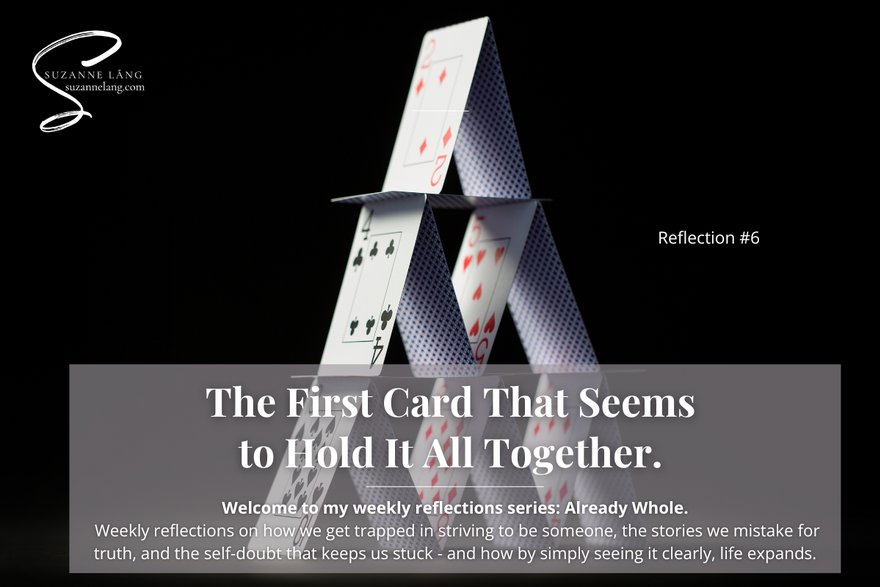
Everything I do or write about focuses on four areas: The Nature of Thought, Our Conditioning, The Separate Self and the Awareness that quietly notices all of this. Today I want to write about the hardest thing to see and also, that which can seem terrifying to even contemplate. I want to take away your fear, because seeing this is truly where peace begins.
At age 29, Eckhart Tolle, author of one of the first books I ever read on this topic back in 2000, experienced severe depression. His tells us that one day he was feeling so sad and in such deep despair that he was suicidal. He heard himself think "I can't live with myself any longer."
In the next moment something snapped to and he wondered, "Who is this ‘I’ that cannot live with itself?" And that was the death of Eckhart Tolle - not the man - but the character, the ego. The identification with the thoughts that tell us what we are.
In that moment of insight, Eckhart saw clearly there were two selves: 1) the self that was in pain and didn’t want to live any longer and 2) something that was noticing that pain. It didn’t give him an answer. It created a strange kind of confusion - the sense that there were two selves. And in that confusion, something deeper started to wake up.
We all live in this confusion, we just don't know we're confused 😂. Because none of us ask the question “Who is this ‘I’ who is good, bad, too fat, too thin, not smart enough, not rich enough?"
This whole newsletter - and everything I do - is to get you to ask yourself that question. In the answer to that question there is such peace and freedom.
So, there's the self we continuously try to improve, fix, protect or defend - the one we imagine is holding everything together. This is the ‘I’ that has become your identity. And then there is something else, quietly aware of all these efforts. Ever present, ever aware.
I cannot teach you about it, I can not tell you where you can find it, I cannot force you to see it and I cannot even convince you that it is there - the only thing I can do it point you to it.
Salvatore Poe (another fantastic author) uses a house of cards to make this clearer. That identity – the ‘me’ that is trying to hold everything together - is like a house of cards.

The very first card is the day you start to believe that you, as a baby, are separate from other people. It is the day you answered to your name and thought: this name is me. Up until that day you were simply a part of everything - there were no concepts, no thoughts to separate you from the whole.
In other words, the first card is the belief that you are separate, when you began to see yourself as different from others. This belief in a separate ‘me’ became the foundation of every other card that followed. Without this card no other cards could be leaned up against it.
From then on every other card - ie. your should’s, shouldn’ts, can’s, can’ts, beliefs, roles, fears, and goals - all become a house of cards built upon this first card - this one idea that I am separate from everyone else.
Little by little, we were conditioned into it. Not by malice, but by culture, language, approval, disapproval. We learned how to be “good,” how to fit in, how to win praise and avoid punishment. And with each lesson, a new card was added to our house.
We spend so much energy rearranging these cards - moving them around, removing some, and adding others. We call this rearranging "psychology," and we take it very seriously. We've even created hundreds of diagnoses, all built around that first card - the separate self. But these diagnoses aren’t absolute truths; they're constructs based entirely on the belief in a "me" that was never even solid to begin with.
Because it's just a house of cards.
If we take away that first card - the belief in a 'me' - then all the other cards fall with it. The whole house falls apart. Without the belief in a 'me' there was nothing there that was substantial enough to stand.
As long as we don't notice that foundational card - the belief in a separate self - just like Eckhart did, we keep endlessly trying to manage, and control an identity constructed entirely of conditioned thoughts and feelings. Until we question it, we carry on seeing what can never be true… as if it were real. And it is exhausting.
My invitation for you this week is to start asking: Who is this ‘I’ that keeps fighting with itself in my mind?
Who is this ‘I’ who needs to be XYZ?
Who is this ‘I’ who thinks it has to be XYZ in order to be loved?
Who is this ‘I’ who wants to change?
We have learned not just to have a self, but to become one. One we had to constantly perform, protect, and perfect.
It might feel scary: But if I’m not this ‘I’... who am I?
And you might ask: Would I stop caring? Stop doing? Would I just lie on the couch, like a sack of potatoes, and just dissolve?
NO! I am here to tell you that it's not like that at all. How much baggage are you carrying in all of those cards, making sure they never fall?
The relief is enormous, the freedom is enormous.
Life is enormous, but we make it small when we have to constantly worry if our house will fall down or not.
Once you see clearly that the "self" is just a construction - made of thought, memory, and fear - it loses its grip. It truly makes no sense any longer, because you see that life doesn’t need anything to hold it together – it happens all by itself, all the time, in every moment – with or without ‘your’ control.
You begin to live not from the imagined ‘I’ always struggling to be XYZ, but from the quiet awareness that's always been right here, noticing.
And that…is the beginning of freedom.
Not the freedom to become something - but the freedom to stop pretending that you ever weren’t whole.
With love, 🌿
Suzanne


Comments